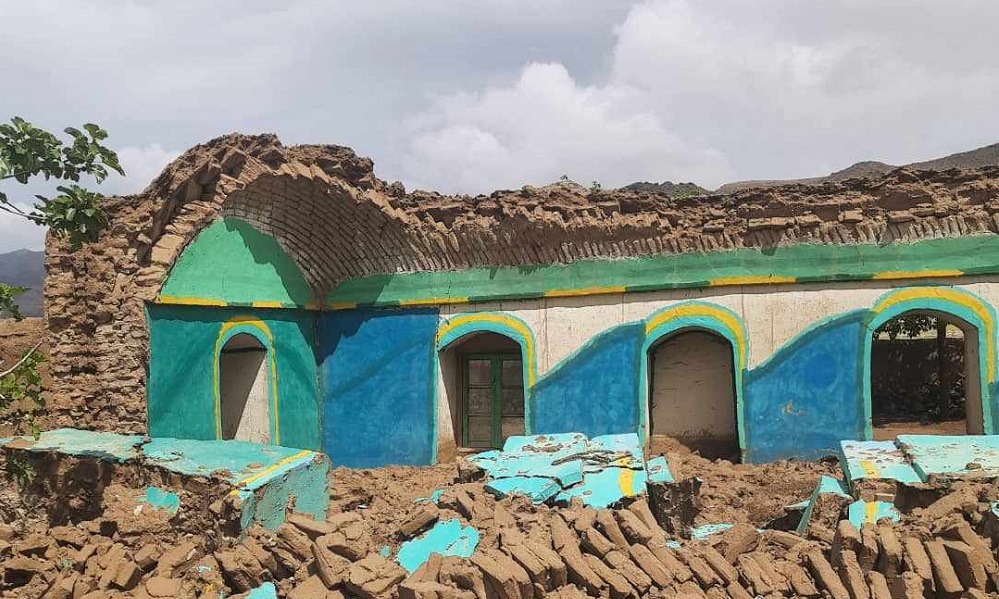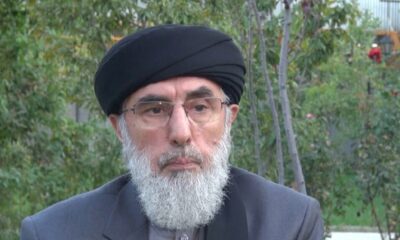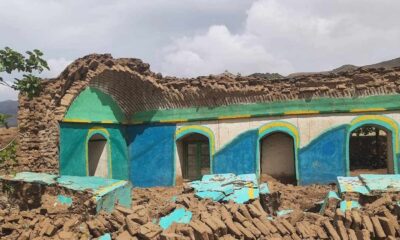Latest News
Without work and food, hundreds flee to Pakistan and Iran daily

A main bus terminal in Kabul is nowadays crowded as many residents of the city try to find their way out of Afghanistan into some neighboring countries.
Bus drivers at the Paitakht Bus Terminal said many families were trying to leave Kabul each day, but many could not afford the bus fare to destinations near the border cities.
“There are many families traveling (out of here) these says days. Most of them travel from here to Mazar-i-Sharif, and then many of them cross the border to Iran from Mazar-i-Sharif,” said bus driver Sahil.
Underlining the economic pressures building on Afghanistan’s new Islamic Emirate government, prices for staples like flour, fuel and rice have risen and long queues are still forming outside banks as they strictly ration withdrawals.
Some humanitarian aid has started to arrive and limited trade has returned across land borders with Pakistan, but a severe cash shortage is crippling day-to-day economic activity and decades of war have left much infrastructure in tatters.
Foreign aid payments, which accounted for 40% of Afghanistan’s gross domestic product, have all but stopped as the West considers how to deal with the IEA that, until August, led an insurgency against the U.S.-backed government.
Abdullah, one Kabul resident hoping to leave, said: “We will leave for Pakistan or Iran because we don’t have work here. We work the whole day for a single bite of bread. What else can we do? We have brought these items at home and have brought them here to sell, since there is no money and no work.”
This comes amid a continuing economic crisis including a severe cash shortage in the heavily dollarized country.
With dollar shipments to Afghanistan having been stopped and with sanctions against the IEA in place, thousands of government employees have not been paid and work has dried up especially as banks have a strict weekly withdrawal limit.
Members of a Russia-led security bloc that includes some countries adjacent or close to Afghanistan meanwhile have no plans to host Afghan refugees, bloc member Kazakhstan said last week.
The Collective Security Treaty Organisation (CSTO) includes three Central Asian nations – Tajikistan, which has a lengthy border with Afghanistan, Kyrgyzstan and Kazakhstan – as well as several more remote former Soviet republics.
At a heads-of-state meeting of the bloc in Tajikistan on Thursday, Kazakh President Kassym-Jomart Tokayev “supported the joint CSTO position that the placement of Afghan refugees or foreign military bases on our countries’ territories is unacceptable”, his office said in a statement.
Two more Central Asian nations, Uzbekistan and Turkmenistan, border Afghanistan but are not CSTO members. However, Uzbekistan has also said it would only allow short-term transit of refugees by planes to third countries.
Latest News
More than 800 Afghan refugees deported from Pakistan in two days

As many as 837 Afghan refugees have been forced to return to their country through Torkham and Spin Boldak crossings in the last two days, officials announced on Saturday.
The Ministry of Refugees and Repatriation said in a statement that 90 families comprising 468 people returned through Torkham crossing.
Another 67 families comprising 369 people returned through Spin Boldak crossing, it said.
The returnees have been introduced to international organizations to receive aid, and the Islamic Emirate has also paid 10,000 Afghanis to each family.
Pakistani government launched the second phase of deporting illegal refugees five days ago.
Latest News
Iran executes four Afghan prisoners

Iran executed four Afghan prisoners in Vakliabad Prison in Mashhad on Thursday morning, a human rights group reported.
Haalvsh said that the individuals had been arrested in 1398 over drug-related charges and then sentenced to death by the court.
This organization announced the names of the executed prisoners as Zaman Taheri, Salam Taheri, Gholam Qadir Samani and Ebrahim Noorzahi.
Zaman Taheri and Salam Taheri were brothers.
Iranian officials have not commented about the matter so far.
Latest News
Roof collapse kills two in Helmand

Two people were killed after roof of their house collapsed in southern Helmand province on Friday night, officials said.
Abdul Bari Rashid, head of information and culture in Helmand, told Ariana News that the incident occurred in Tajkan village of Gershak district due to heavy rain.
According to him, the dead include a woman and a child. A man was injured in the incident.
This comes as 10 people have died and six others have been injured as a result of the floods in Helmand province in the last one week.
-

 Sport5 days ago
Sport5 days agoACL fever grows as fixtures finalized
-

 Latest News5 days ago
Latest News5 days agoOver 50 people dead in traffic accidents over Eid
-

 Latest News5 days ago
Latest News5 days agoUS identifies Kabul airport suicide bomber
-

 Business5 days ago
Business5 days agoAfghanistan-Kazakhstan chamber of commerce opens in Herat
-

 World4 days ago
World4 days agoIsraeli military vows response to Iran attack as calls for restraint mount
-

 Sport3 days ago
Sport3 days agoATN secures exclusive rights to broadcast Paris 2024 Olympics
-

 Latest News4 days ago
Latest News4 days agoPakistani police give Afghans in Balochistan one day to leave
-

 Latest News4 days ago
Latest News4 days agoHekmatyar slams US for ‘occupying’ Afghanistan’s airspace
























